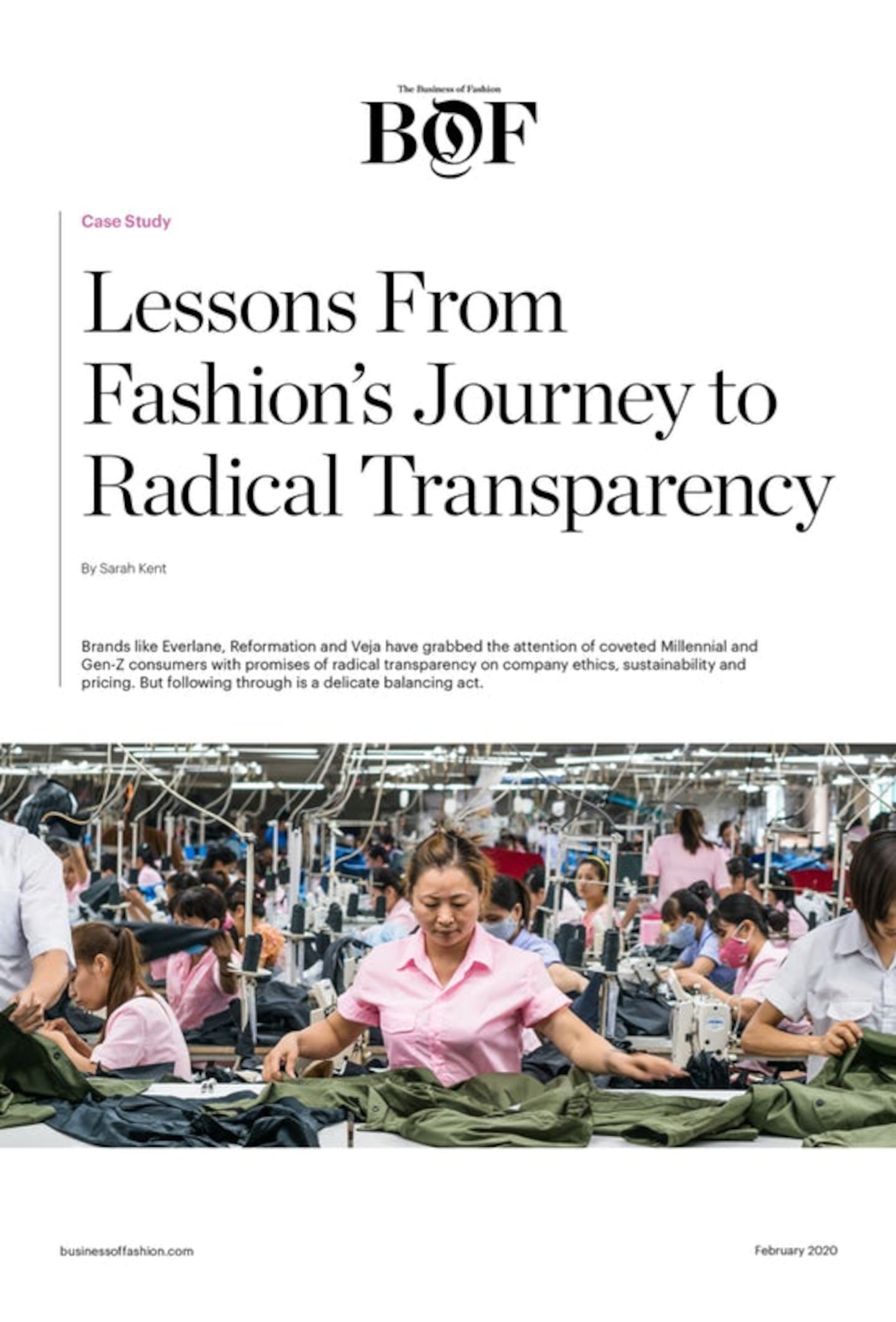
The Business of Fashion
Agenda-setting intelligence, analysis and advice for the global fashion community.

Agenda-setting intelligence, analysis and advice for the global fashion community.

This article is part of BoF’s special edition, Can Fashion Clean Up Its Act?
Is “radical transparency” in fashion even possible?
McKinsey & Company has called out "a rising trust deficit" among consumers, putting pressure on brands to show there's depth to their claims about transparency and sustainability.
But there are some brands doing the work to show consumers they are serious about corporate responsibility.
ADVERTISEMENT
Veja, Reformation, Eileen Fisher and others that have already taken steps to lift the curtain on their business practices, but perhaps no brand has been more vocal than San Francisco-based direct-to-consumer apparel company Everlane, which positioned itself as a leader in this wave, embedding the buzzy company slogan of "radical transparency" into its business model.
But radical transparency isn’t easy. Critics say that the most radical thing about Everlane is its marketing — a charge the company vigorously denies.
And while the pressure is mounting on brands to provide consumers with more information to back up claims of ethical, sustainable or price-competitive practices, embedding transparency into a business presents key pain points:
BoF's latest case study explores what it takes to be a transparent and commercially successful brand — big or small — without being accused of “clearwashing.”
Editor’s Note: This case study was corrected on February 12, 2020. A previous version misstated Kathleen Talbot’s title, her description of the fallout from uncovering issues that can’t be remediated at major manufacturing partners as “destructive,” and that Good On You last reviewed Everlane in February, 2018. This is incorrect. Kathleen Talbot is chief sustainability officer and vice president of operations at Reformation, she said the impact of issues at manufacturers was “disruptive,” and Good on You last reviewed Everlane in December, 2019.
The fashion industry continues to advance voluntary and unlikely solutions to its plastic problem. Only higher prices will flip the script, writes Kenneth P. Pucker.
The outerwear company is set to start selling wetsuits made in part by harvesting materials from old ones.
Companies like Hermès, Kering and LVMH say they have spent millions to ensure they are sourcing crocodile and snakeskin leathers responsibly. But critics say incidents like the recent smuggling conviction of designer Nancy Gonzalez show loopholes persist despite tightening controls.
Europe’s Parliament has signed off rules that will make brands more accountable for what happens in their supply chains, ban products made with forced labour and set new environmental standards for the design and disposal of products.